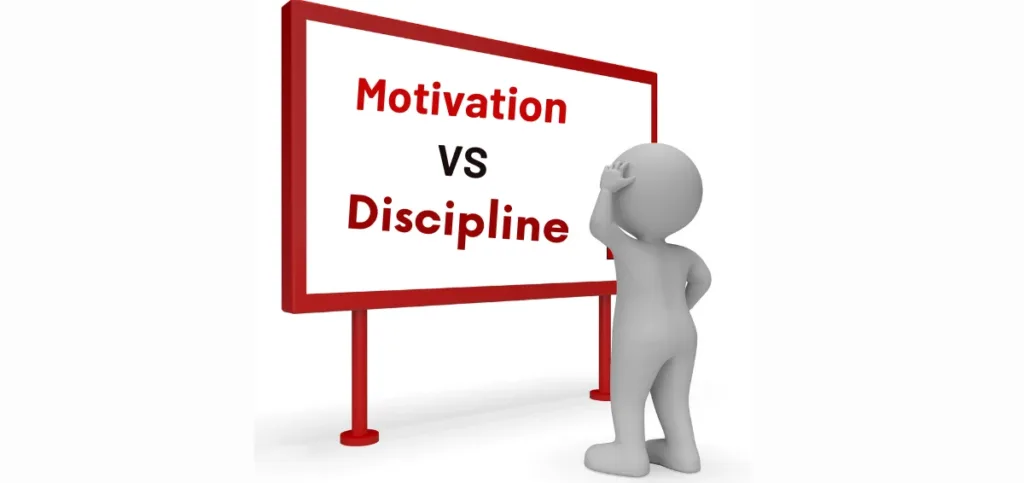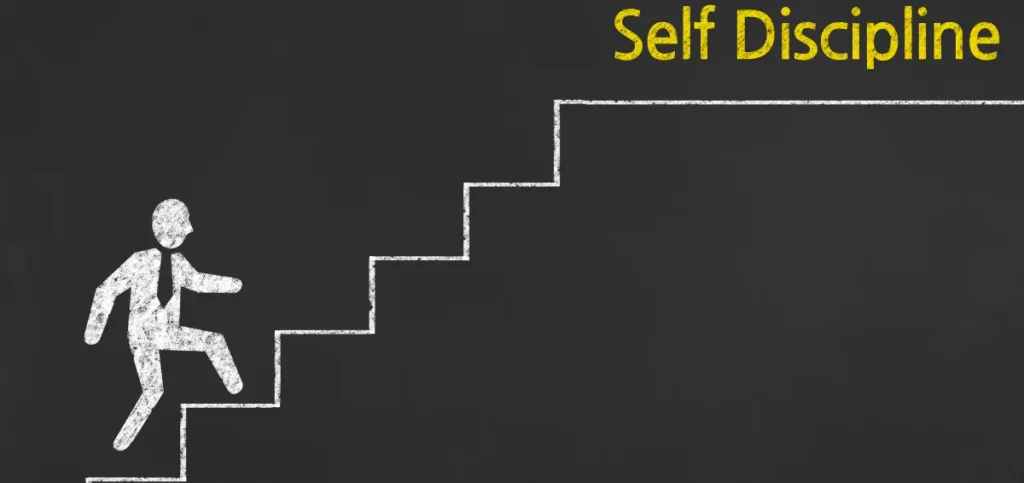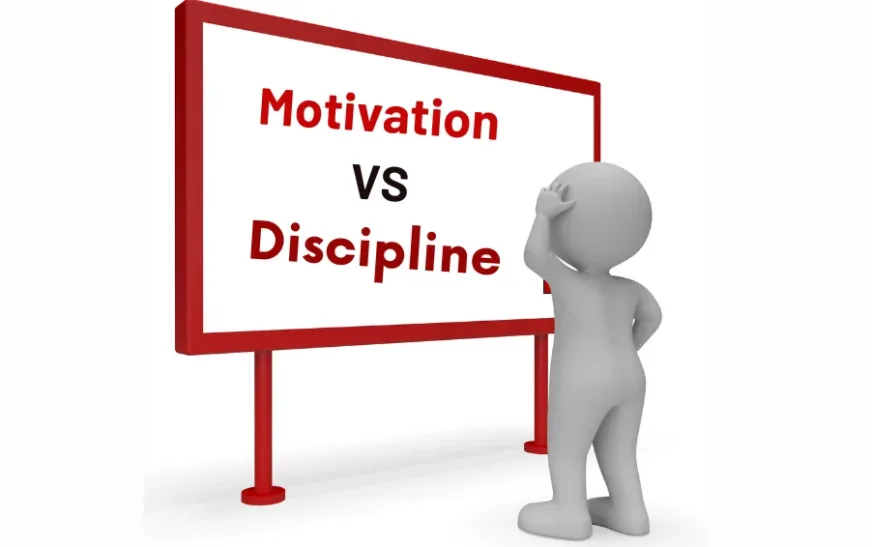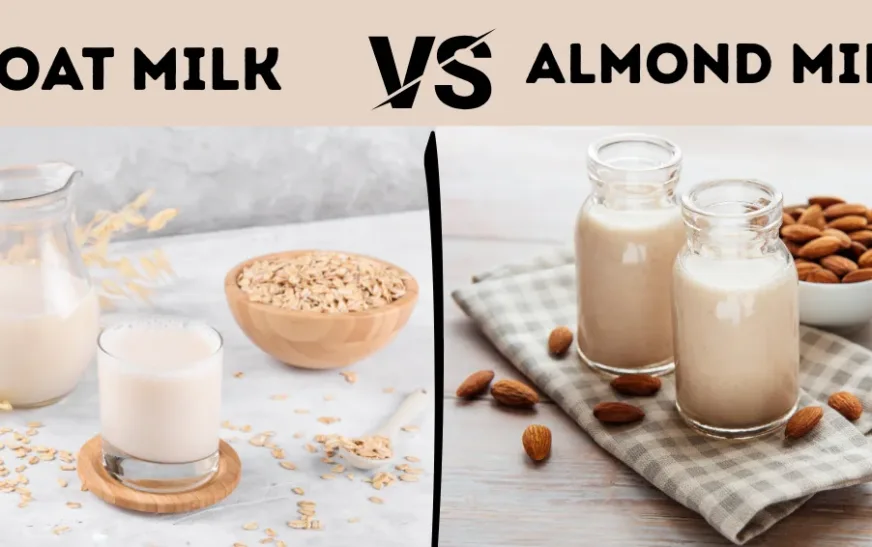
There’s a famous saying by John C. Maxwell, ‘Motivation gets you going, but discipline keeps you growing.’ And it’s true, according to a study, that people with discipline are more likely to achieve long-term goals, even when motivation fades out.
However, a successful journey requires both motivation and discipline. If motivation is the fuel that gets you going, then discipline is the engine of consistency. But are they the same? What’s the difference between the two? Which one will help you go further? This article will give answers to all your questions.
What is motivation?

Motivation is an internal desire to do or achieve something. It gets you out of bed every morning to pursue a goal, a dream, or a challenge. Motivation is often triggered by specific goals or inspiration, such as an inspirational video or a life event. Motivation can be external or internal. Intrinsic or internal motivation comes from within, whereas external or extrinsic motivation is derived from external rewards like money, fame, or praise.
Motivation triggers our first step toward our goal. For example, if you want to lose weight, this desire can come from watching a video.
Must Read: How to Prepare for an Interview?
The Strengths of Motivation
As mentioned above, motivation is a powerful emotion that helps you achieve your goal. It is great for a short-term energy boost. Motivation also helps spark new habits and change in you. You must have noticed how your goals seem clearer when you’re motivated.
The Limitation of Motivation
Motivation is fleeting. According to a study done in 2023, only 37% of people could maintain motivation for more than a month. Be it your New Year’s resolution or your new fitness plan, motivation always fades when life gets hard. That’s why it is said that motivation derives from your emotions, which always change.
What is discipline?

Discipline is doing what needs to be done even when you don’t feel like doing it. Discipline is all about commitment rather than feelings or emotions. Since discipline is a skill, you can train, strengthen, and automate it through habits, like sticking to your workouts even when you are tired or feel lethargic. Saying no to distracting stuff is also a form of discipline.
Why Discipline Wins?
Discipline is a skill; hence, it is consistent. Self-discipline is a stronger predictor of academic success than IQ or talent. Discipline works because it helps you build habits. You are training your brain when you do the hard thing, especially when you don’t feel like doing it. You are telling your brain to take action regardless of emotions. According to a 2024 study, 50% of gym memberships get wasted after 6 months. The people who stick with it are derived from routine, not mood.
Must Read: Secure Internal Communication
How to Build Discipline?
There is no hard and fast rule to build a disciplined routine, but here are a few tips to be disciplined:
- Always remember that consistency is the key. Consistency beats intensity; hence, habits are always built that are manageable. Instead of finishing the entire subject in a day, start by finishing one chapter a day.
- To achieve something, you have to let go of some hurdles. To achieve that perfect body, you must follow a diet and avoid those tempting ice creams or burgers.
- Always track your progress. You have to make a table or a spreadsheet, or use a habit-tracking tool to track your daily habits and progress.
- Attach new habits to your old or existing ones. It’s easier to grow when you have something as a base.
Motivation vs Discipline
Motivation and discipline are two core pillars of growth and success, but apart from forcing you to do your job, these two differ a lot. Let’s examine some basic yet important differences between motivation and discipline.
| Aspect | Motivation | Discipline |
| Nature | It is derived from emotions. | Your habit derives discipline. |
| Consistency | Motivations vary. | Discipline is always steady. |
| Duration | Short-term | Long-term |
| Dependency | Internal and External factors. | Internal control |
| Outcome | Initiates action | Sustains progress |
Frequently Asked Questions
Which is more important, discipline or motivation?
Discipline is more important than motivation, as discipline is action-driven, not emotional.
What comes first, motivation or discipline?
Motivation is desire, whereas discipline is the ability to do something. Hence, discipline comes first.
Will discipline take you where motivation can’t?
Yes. Discipline takes you where motivation can’t because goals are action-oriented. They don’t care about emotions.
How to choose discipline over motivation?
Start small and commit to doing one manageable task a day.
Conclusion
Well, in the end, we can all say that discipline can help you go further. Motivation does help you start, but discipline keeps you sticking to it. Also, motivation can fade as your emotions change. So, if you want long-term growth and success, build a habit, set a routine, and show up irrespective of your mood, especially when you don’t feel like showing up.










